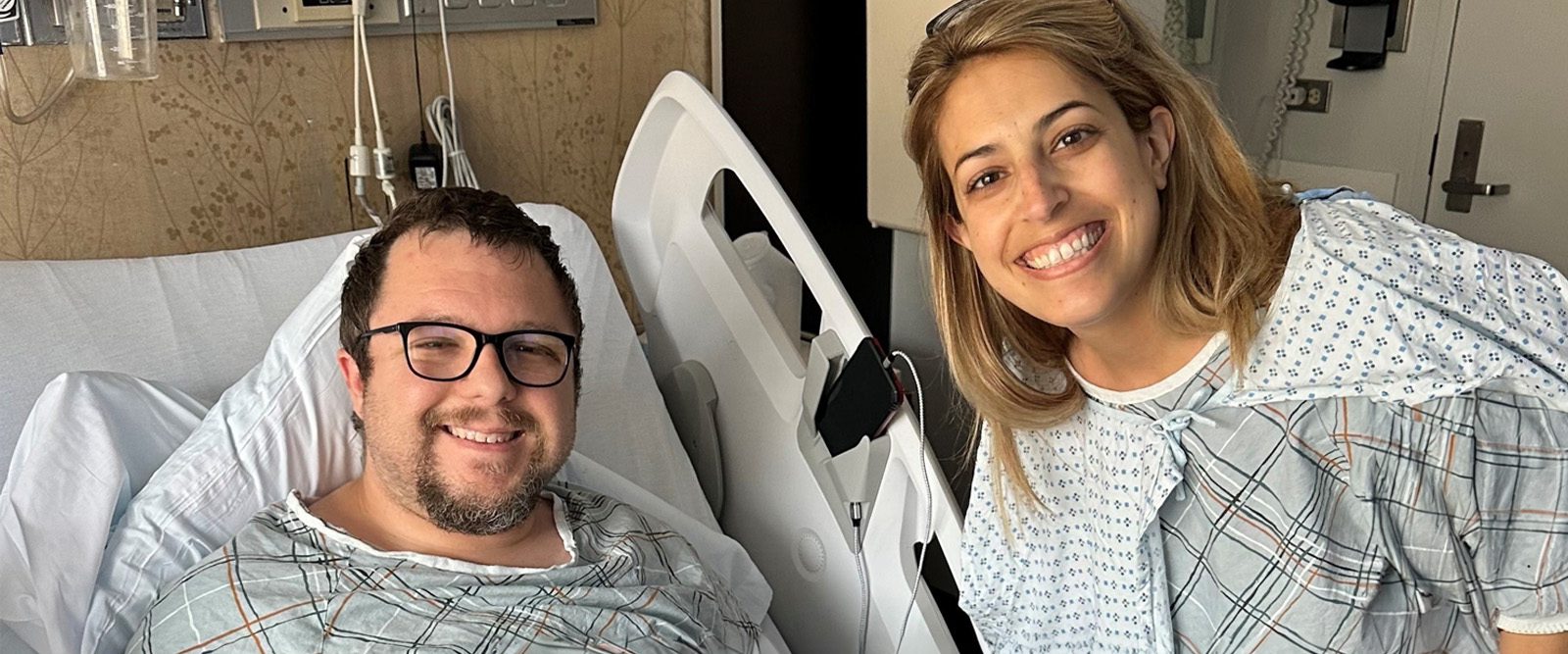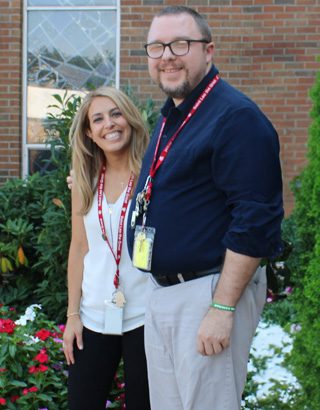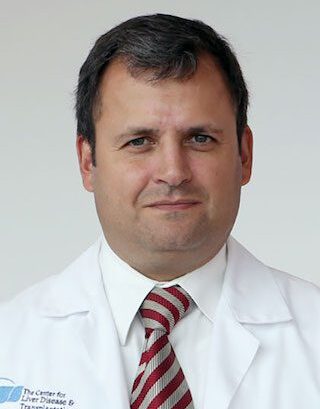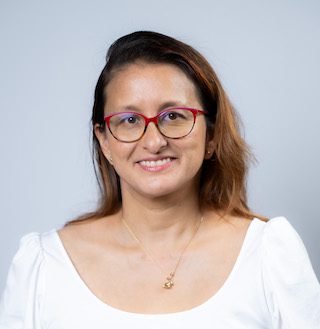A Kidney Donation Cements a Forever Bond Between Two Teachers
When Lauren Crupi went into kidney failure and needed a transplant, her colleague and fellow teacher Mike Daneman stepped up.

About a decade ago, at just 25 years old, Lauren Crupi was diagnosed with autosomal dominant tubulointerstitial kidney disease (ADTKD), a type of chronic, genetic kidney disease. Despite the diagnosis, her symptoms were almost nonexistent, so other than taking medication and getting routine bloodwork to monitor the progress of the disease, it had little impact on her life.
That made the conversation she had shortly before Christmas 2022 with Dr. Gerald Appel, her nephrologist at NewYork-Presbyterian/Columbia University Irving Medical Center, all the more shocking. He told her that her levels of creatinine, a waste product in the blood that should be filtered by the kidneys, were so high that she would need dialysis in a year. “Initially, my reaction was, ‘Well, I’ll just go on dialysis,’” Lauren says. “‘I’m not going to burden anyone with this.’”

Lauren Crupi and Mike Daneman stand in front of the New Jersey school where they both teach.
But knowing how dialysis would impact her quality of life, Dr. Appel encouraged her to at least get the word out to see if she could find a donor, and her husband finally convinced her it was worth a try. On New Year’s Day, he posted about their situation on Facebook. “It was a shot in the dark. I honestly didn’t think I was going to get a match,” Lauren says.
One of the first people to respond was Mike Daneman, a computer science teacher at St. Leo the Great School in Lincroft, New Jersey, where Lauren also worked as a language arts teacher. Mike taught both of Lauren’s children and had lost his own mom to cancer at age 5. “I was the same age as Lauren’s daughter when my mom passed,” he says. “My first thought was, ‘These kids need their mom.’”
A Miracle Match
After educating himself about the donor process, Mike got tested for his compatibility — and in a stroke of luck, he turned out to be a match.
The news couldn’t have come at a better time, as Lauren’s symptoms were getting worse. “I became anemic,” she says. “I was constantly out of breath and had to sit down for most classes. I felt cold all the time, weak, and fatigued.”
As part of the assessment process for transplant, Lauren and Mike had to undergo additional bloodwork and testing, including X-rays, electrocardiograms, and mental health evaluations, at NewYork-Presbyterian/Columbia University Irving Medical Center. “When Dr. Appel told me all about NewYork-Presbyterian’s transplant team and how amazing they are, I didn’t consider going anywhere else,” Lauren says.

Dr. P. Rodrigo Sandoval
After the evaluations were complete, their surgeries were scheduled for June 1, right after the end of the school year — and much to Lauren and Mike’s surprise, the two were sent off with cheers and applause at a pep rally attended by all the students and faculty. “It was so uplifting and positive,” she says. “I felt like I had all this support going into surgery.”
A Smooth Recovery
Dr. P. Rodrigo Sandoval and Dr. Lloyd E. Ratner, kidney transplant surgeons at NewYork-Presbyterian/Columbia University Irving Medical Center, performed Lauren’s and Mike’s surgeries, respectively. The operation went well, aided by both patients’ enthusiasm. “He was a very good donor for her, and it couldn’t have worked better,” Dr. Sandoval says. “It was a humbling experience, and very gratifying. Mike showed the ultimate compassion and kindness.”
When they woke up from surgery, the first thing each patient did was ask how the other was doing. And even after being discharged, they checked up on each other throughout the recovery process. “Mike was a week ahead of me recovery-wise,” says Lauren. “He would always give me updates so I knew what to expect. He would say something like, ‘I can sleep on my side now,’ which made me think, ‘Thank God, I’ll be able to sleep on my side soon.’ Knowing those things along the way really helped.”
Mike’s recovery was swift. He had to let his sutures heal and avoid heavy lifting for the first few weeks, but says he felt better in about a month. “Physically, I feel exactly the same as I did before, if not better,” Mike adds. “Donating my kidney has been the best decision of my life.”

Dr. Hilda Fernandez
Full recovery for Lauren took about three months, just in time to return for the first day of school, although she says she felt a difference right away. “The day after the surgery, despite the incision pain, everything already seemed brighter. It was like a gray film over my eyes had been lifted,” she says.
Today, Lauren is doing better than ever. “I’m so happy that Lauren found a donor before her condition required her to go on dialysis,” says Dr. Hilda Fernandez, Lauren’s transplant nephrologist at NewYork-Presbyterian/Columbia University Irving Medical Center. “She’s been doing fantastic.”
Lauren is especially thankful that she can teach her classes with the same level of energy she had before her kidney disease worsened. “You become so accustomed to the symptoms that you just go through the motions, and you’re not really living,” she says. “Now, I feel reinvigorated, and it’s amazing the difference I feel emotionally. I feel like a new teacher again.”
Lauren and Mike say their experience bonds them together forever. “To see all this new life in her is great,” Mike says. “And just to know that I was part of that is really nice.”
“I am so incredibly thankful to Mike,” says Lauren. “We’re just like one big family and so happy that this brought us all together.”
Additional Resources
See how you can sign up to become an organ donor.
NewYork-Presbyterian performs living donor kidney at both NewYork-Presbyterian/Weill Cornell Medical Center and NewYork-Presbyterian/Columbia University Irving Medical Center. To learn more, visit nyp.org/transplant
